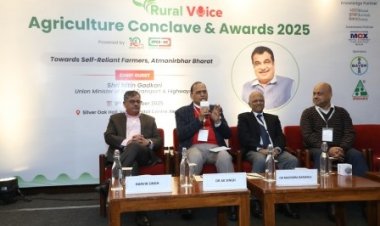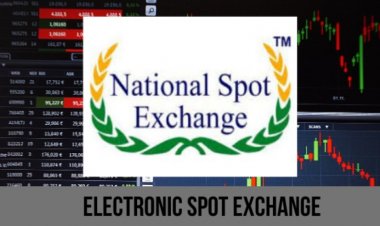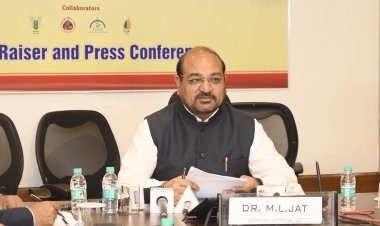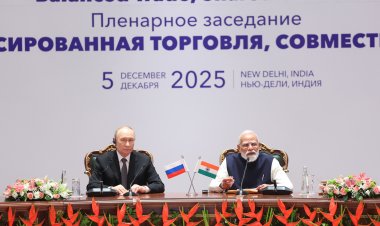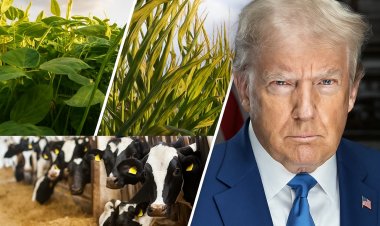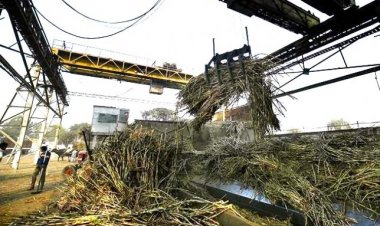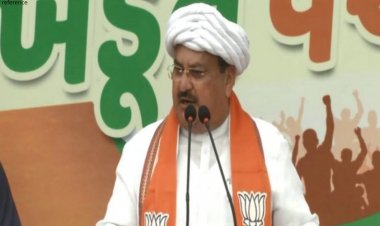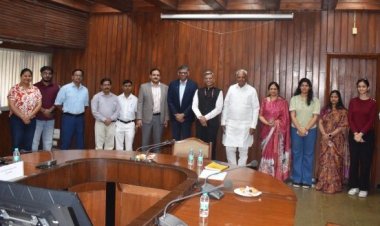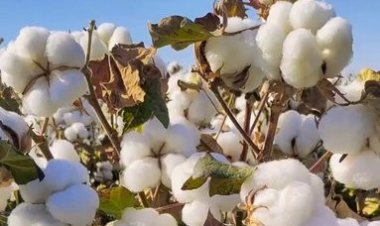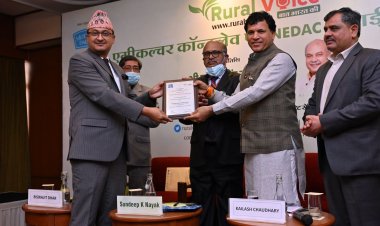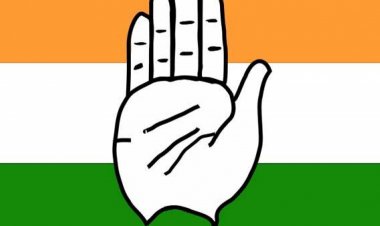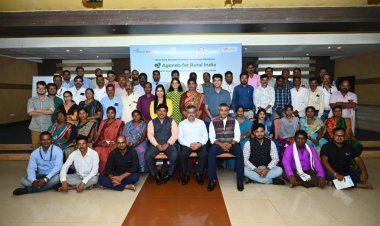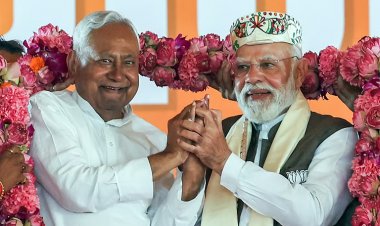Increase in prices leads to 74 per cent fall in DAP sales; total fertilizer sales down by 25 per cent
The fertilizer producer companies increased the prices of decontrolled fertilizers (complex fertilizers) by 45 to 58 per cent from April 1, 2021. This has resulted in a 25 per cent fall in fertilizer sales. A fall of 74 per cent has been registered in the sales of DAP, the prices of which saw the maximum rise of 58 per cent.
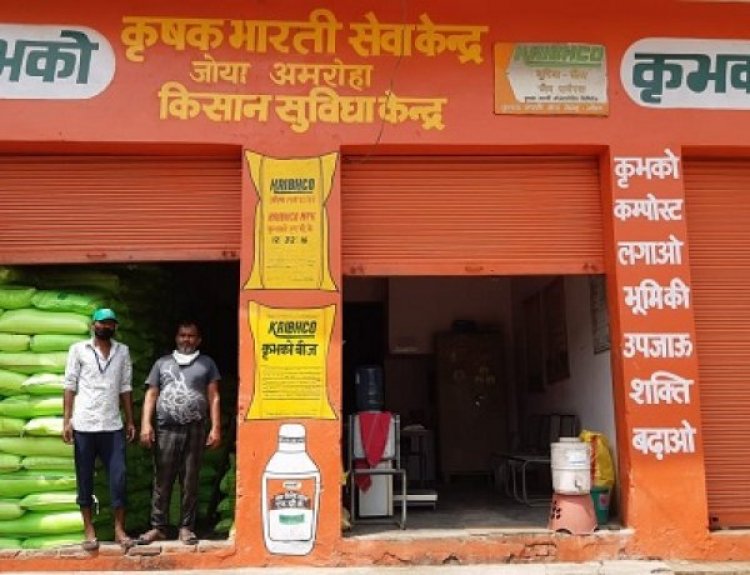
The government’s indifference towards the farmers and the agriculture sector, which has propped the economy of the country during the Covid-19 pandemic, gives the sense of a major crisis brewing. The fertilizer producer companies increased the prices of decontrolled fertilizers (complex fertilizers) by 45 to 58 per cent from April 1, 2021 in the wake of a massive increase in the raw material prices in the international market. These fertilizers include di-ammonium phosphate (DAP), muriate of potash (MOP) and other complex fertilizers. The farmers are unable to bear the burden of the price rise and this has resulted in a 25 per cent fall in fertilizer sales. A fall of 74 per cent has been registered in the sales of DAP, the prices of which saw the maximum rise of 58 per cent.
Sources in the industry told RuralVoice that a fall of 25 per cent has been registered in fertilizer sales since April 2021. The maximum fall has been in DAP sales — 74 per cent. Even the sales of urea, which has not witnessed any price increase, have registered a 15 per cent decline as compared to last year. If the situation continues, it is bound to have an adverse impact on agricultural production. There may be a fall in agricultural production in spite of normal monsoons. And the biggest reason for this will be reduced fertilizer consumption by the farmers in the wake of increased prices.
What is significant is that the government has kept mum on this serious issue. When the fertilizer companies started increasing prices in April, a clarification was given that the Indian Farmers Fertiliser Cooperative Ltd (IFFCO), the largest fertilizer producer cooperative, had more than 11 lakh tonnes (lt) of old stock. This would be sold at the old rates. IFFCO, too, had given this clarification. But there was no reply to the question of whether the prices of the stock being produced from April 1 would be reduced. Now that some 40 days have passed since the declaration of the price increase, complex fertilizers are being sold to the farmers at the new rates. Yes, it’s true that IFFCO has so far sold the fertilizers at the old prices, but this stock is now about to finish. A senior IFFCO official told RuralVoice, “The government has not brought about any increase in the subsidy. Given this, we, too, are left with no option other than selling the new stock at the new prices. IFFCO’s stock of old prices is about to finish. Also, when other companies are selling complex fertilizers at the new prices, we, too, will have to sell fertilizers only at the prices determined on the basis of cost.”
The way fertilizer sales have declined in the first 40 days of the current year clearly indicates that farmers have been adversely affected by the increase in prices. Farmers say that the increase in fertilizer prices has straightaway led to an increase of up to 10 per cent in production cost. There is little possibility of the government compensating this through an increase in Minimum Support Price (MSP).
The government has so far not taken any step in order to reduce the farmers’ burden caused by the increase in prices. It grants fixed subsidies on complex fertilizers under nutrient-based subsidy (NBS) and has no control over the prices of these fertilizers. Companies fix prices on the basis of raw material prices. This is why fertilizer producers had to raise prices in the wake of the increase in raw material prices. The government on its part did not bring about a commensurate increase in subsidy. Sources in the industry say that it is up to the government to decide whether it wants to give relief to farmers.
However, the government had poured cold water on any such possibility when, on April 9, the Ministry of Chemicals and Fertilizers issued an office memorandum stating that the NBS rates for subsidy granted on non-urea fertilizers be kept at the same level as that last year (2020-21). It has been said in the memo that the NBS rates for the current year (2021-22) will continue at the levels of last year (2020-21) till further orders. It thus becomes clear that there is no possibility of a rollback in the price increase of up to 58 per cent for DAP and other complex fertilizers brought about by IFFCO, Krishak Bharati Cooperative Ltd (KRIBHCO) and private companies from April 1, 2021 in the wake of the increase in raw material prices in the international market. KRIBHCO, Mangalore Chemicals & Fertilizers, Juari Agro and Paradeep Phosphates Ltd have raised the DAP price to Rs 1,700 per bag (50kg). As per IFFCO’s new prices, the price of a DAP bag (50kg) has gone up from Rs 1,200 to Rs 1,900.
In a statement issued in April, IFFCO had said that old stock of 11.26 lt of complex fertilizers was available with it, which would be sold at the old prices. However, sources say that the sale of this stock is about to be over and they have no option but to sell the fertilizers at the new prices.
The information regarding the increase in prices of decontrolled fertilizers had first come to light in an inter-departmental letter issued by IFFCO but other companies had also raised prices.
The central government fixes the subsidy rates for non-urea fertilizers under NBS. These rates are as per the nutrients and the amount of subsidy is determined on the basis of their quantities in the fertilizers. Since the amount of subsidy is fixed, the ups and downs in the raw material prices determine the retail prices of the fertilizers. There has been a massive increase in the raw material prices of DAP and other complex fertilizers over the last six months. As a result, the fertilizer companies raised their prices. There is only one way to avert this increase in prices — that the government increase the subsidy in tune with the increase in raw material prices. But this has not happened and the April 9 memo makes it apparent that the government is not going to revise the NBS rates anytime soon.
The NBS rates that the government has ordered to continue in the current year had been fixed on April 3, 2020. As per these rates, a subsidy of Rs 18.789 per kg is given on nitrogen, Rs 14.888 per kg on phosphorus, Rs 10.116 per kg on potash and Rs 2.374 per kg on sulphur. Based on these subsidy rates, DAP, which consists of 18 per cent nitrogen and 46 per cent phosphorus, gets a subsidy of Rs 10,231 per tonne. The subsidy level on MOP, which consists of 60 per cent potash, is Rs 6,070 per tonne while that on NPK 10:26:26 is Rs 8,380 per tonne. At present, the cost of DAP, at the import price of $540 per tonne and an exchange rate of Rs 74.50 per dollar, comes to Rs 40,230 per tonne. Add to this the customs duty of 5.5 per cent and Rs 3,500 per tonne on expenses like insurance, storage, packaging, freight and dealer margin, and the cost to the company goes up to Rs 45,950 per tonne. Allow for a subsidy of Rs 10,231 and add the GST of 5.5 per cent and this cost now comes down to Rs 37,500 per tonne. IFFCO has fixed the new DAP price at Rs 38,000 per tonne, which comes to Rs 1,900 per bag (50kg). Which is Rs 500 per tonne more than the cost. But going by the way raw material prices are rising in the international market and the rupee is weakening against the dollar, even this margin may disappear for the company.
Right when the prices were being raised, sources in the industry had told RuralVoice that an increase of 45 to 58 per cent in the fertilizer prices may lead to a fall in sales. Recent data indicate that the apprehensions were genuine. The way fertilizer sales have gone down by 25 per cent do not portend well and this may have an adverse impact on agricultural production.
But what is significant is that there is no political agitation on this issue and even the farmer organizations of the country are not much articulate about this. The recent increase in fertilizer prices has been the highest ever. During the Vajpayee government, the then finance minister Yashwant Sinha had announced in the Budget an increase of Rs 2 per kg in urea prices. But this increase had to be rolled back because of the political opposition. This time, however, nobody seems to be disturbed even after the massive increase of 58 per cent. Everyone’s attention is focused on the large second wave of Covid-19 and it appears that the pandemic crisis has relegated the otherwise sensitive issue of increase in fertilizer prices to the background.



 Join the RuralVoice whatsapp group
Join the RuralVoice whatsapp group

















